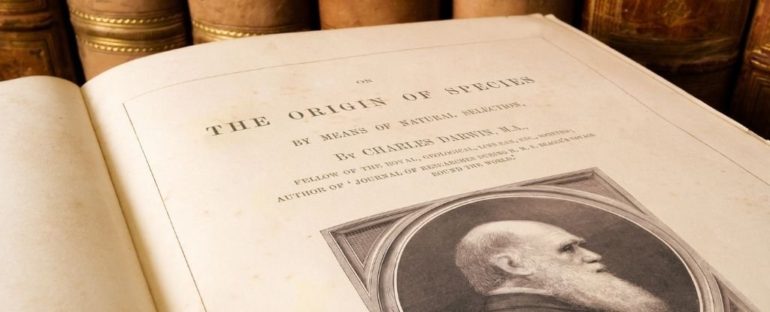More Americans are coming to accept Charles Darwin’s “dangerous idea” of evolution, according to thirty years’ worth of national surveys.
Researchers have found that public acceptance of biological evolution has increased substantially in the last decade alone, following twenty years of relative stagnancy.
Between 1985 and 2010, roughly 40 percent of surveyed adults in the US agreed that “human beings, as we know them today, developed from earlier species of animals”. Taking into account the small number of fence-sitters, this suggests much of the nation was evenly divided on the theory.
By 2016, that percentage had, at last, become a majority, reaching 54 percent.
As it turns out, education has played a crucial role in that shift. When researchers began to analyze the demographics of survey respondents over the past thirty years, they noticed the completion of one or more college science courses was the strongest predictor of evolution acceptance.
“Almost twice as many Americans held a college degree in 2018 as in 1988,” says Mark Ackerman, who studies collective intelligence at the University of Michigan.
“It’s hard to earn a college degree without acquiring at least a little respect for the success of science.”
In the current analysis, the proportion of American adults with scientific literacy increased from 11 percent in 1988 to 31 percent in 2019.
That rise in knowledge can also easily spread to others. For instance, research suggests fewer students are exposed to creationism in the science classroom due in part to new teachers replacing a generation of educators less suited to teaching evolution.
Still, even a healthy dose of education can only go so far. Some researchers, for instance, think religious beliefs are a stronger predictor of accepting evolution than educational attainment. But this is an area of research that is still hotly debated. It could be, for instance, that education only works for some individuals who don’t interpret the Bible literally.
In the US, evolution has become a highly politicized topic, especially among supporters of the Republican party, which tends to align its policies with evangelical Christian values.
The result is that today, the US has some of the lowest acceptance rates for evolution in the developed world, with only Turkey scoring lower.
Even now that a majority of Americans do not reject evolution, the rate of acceptance is still low compared to other nations and much lower than scientific consensus.
In recent years, religious adherence has begun to decline in the US, but the political divide on evolution still very much exists.
In 2019, researchers found 83 percent of liberal Democrats accepted evolution, whereas only 34 percent of conservative Republicans felt the same.
The driving force behind this huge difference is probably not ideological partisanship, experts say, but fundamental religious beliefs, which Republicans tend to hold more.
For instance, roughly 30 percent of American adults hold fundamental religious beliefs that directly contradict evolutionary theory, which is almost the same percentage of conservative Republicans that rejected evolution in the current analysis.
The authors of the current study are not ruling out religion as an influential factor. Their analysis still shows that fundamental religious beliefs can change the acceptance of evolution among American adults. But at least according to their analysis, it seems that educational attainment is the more influential factor.
According to their analysis, the recent increase in acceptance mostly comes from American adults who were previously unsure about the theory. Only some who outright rejected evolution had their mind’s changed over time.
“Although scientific literacy has grown, and science continues to have pervasive influence in American society,” the authors write, “a tension between religious fundamentalism and evolution remains.”
While religion clearly remains a barrier to further public acceptance of evolution, that’s gradually beginning to change. In 1988, the current analysis found only 8 percent of religious fundamentalists accepted the theory of evolution. Whereas in 2019, nearly a third did.
Along with growing exposure to scientific courses, a decline in religious fundamental beliefs will no doubt see the minority of Americans that reject evolution continue to shrink.
Last year, Pew conducted a more global survey that showed a slightly higher acceptance of evolution in the US at around 64 percent.
It’s a number that nonetheless falls far below nations such as Canada (77 percent), Germany (81 percent), and Japan (88 percent), showing the US still has some catching up to do.
The study was published in Public Understanding of Science.



